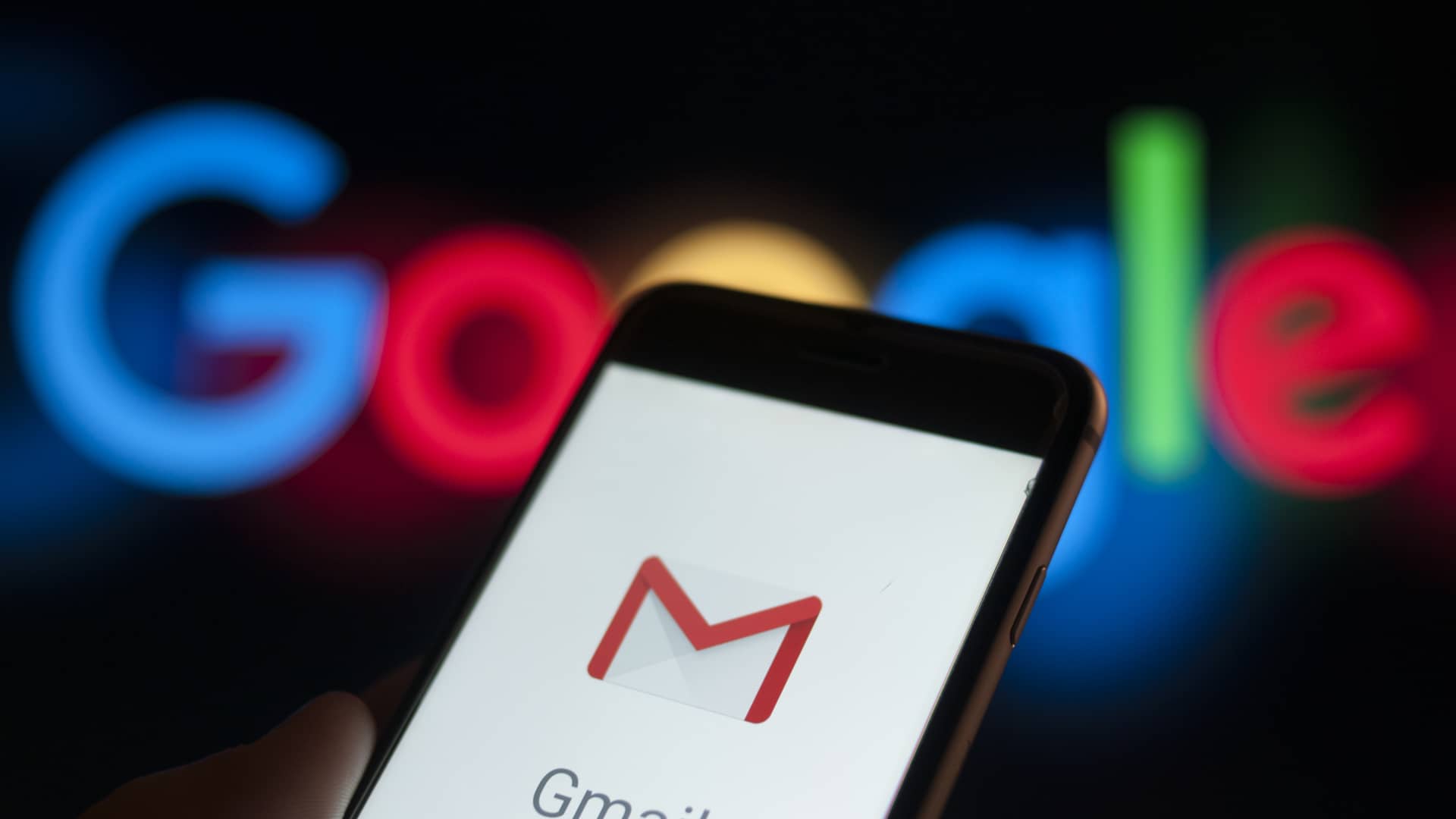
The Gmail application is seen on a portable device on Dec. 6, 2017.
NurPhoto | NurPhoto | Getty Images
Google will make it harder for spammers to send messages to Gmail users, the company said Tuesday.
The company said it will require emailers who send more than 5,000 messages per day to Gmail users to offer a one-click unsubscribe button in their messages.
It will also require them to authenticate their email address, configuring their systems so they prove they own their domain name and aren’t spoofing IP addresses.
Alphabet-owned Google says it may not deliver messages from senders whose emails are frequently marked as spam and fall under a “clear spam rate threshold” of 0.3% of messages sent, as measured by Google’s Postmaster Tools.
Google says it has signed up Yahoo to make the same changes, and they’ll come into effect in February 2024.
The moves highlight the ongoing fight between big tech companies and spammers who use open systems such as email to send fraudulent messages and annoy users. For years, machine learning techniques have been used to fight spam, but it remains a back-and-forth battle as spammers discover new techniques to get past filters.
“These changes are like a tune-up for the email world, and by fixing a few things under the hood, we can keep email running smoothly,” wrote Google product manager Neil Kumaran in a blog post. “But just like a tune-up, this is not a one-time exercise. Keeping email more secure, user friendly and spam-free requires constant collaboration and vigilance from the entire email community.”
Google’s changes could also affect some legitimate marketers who use email aggressively to market to or keep up with their customers, especially the requirement to allow users to quickly unsubscribe.
About half of all emails sent in 2022 were spam, according to an estimate from Kaspersky Anti-Virus.




